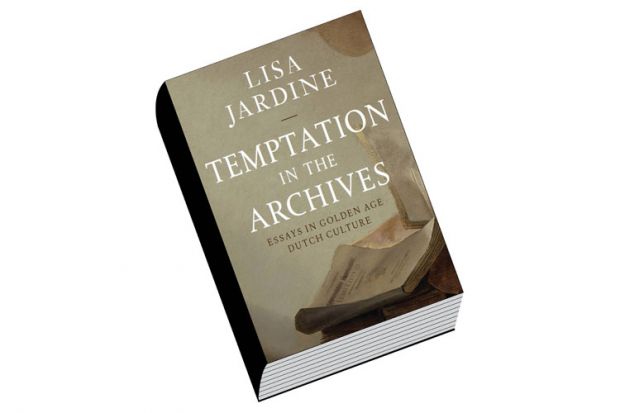The lure of Lisa Jardine’s Temptation in the Archives lies in its superior readability: Jardine tempts her readers to share her enthusiasm and excitement as she digs through letters written by notables, their friends, lovers and servants in early modern Britain and the Low Countries. Via these six essays recording her archival exploits and written for specific public occasions, Jardine constructs a narrative of Anglo-Dutch culture around the many personal, cultural and scientific links between 17th-century Netherlands and Britain.
But Temptation in the Archives is more than a declaration of love for Anglo-Dutch culture: it is also a plea for taking seriously the personal story, the micro-history and everyday historical artefacts. Jardine’s analysis of the familial missives of Dutch poet and polymath Constantijn Huygens, for example, shows how the socially ambitious Huygens carefully constructed his “love” letters to his close friend Dorothea van Dorp along socially acceptable lines. Never does the young Huygens lose himself in declarations of strong emotions: instead he adopts conventional modes and images that prove him worthy of social elevation. Jardine reads Huygens’ communications to van Dorp as an example of “conscious self-fashioning”, acutely aware as he was that his letters would be passed around and beyond their familiar circle, and could make or break his reputation. It is thanks to Jardine’s attention to seemingly unimportant details that Huygens’ reputation as a “virtuous, unassuming, amiable sort of fellow” is modified to include a conscious textual self-construction that put him in a position to rise to the post of private secretary to royalty.
Perhaps the most revealing essay of the collection is “The afterlife of Homo Ludens”. This essay not only maps the continuing significance of the work of the Dutch cultural historian Johan Huizinga, it also unequivocally articulates Jardine’s own academic practice. According to Jardine, Huizinga’s landmark 1938 study Homo Ludens, in which he introduces the idea of “play” and “games” as fundamental to understanding the human condition, initiated a turn in both literary and historical research in the UK and in North America. She suggests that it was Huizinga’s work, mediated by the American cultural historian Rosalie Colie, that inspired Stephen Greenblatt’s lasting cultural-historical concept of “self-fashioning”.
In “The afterlife of Homo Ludens” Huizinga also emerges as a personal inspiration for Jardine’s own practice. His strategy of interrogating the past “from a fully emotional engaged position” applies equally to Jardine’s approach. In the preface to Temptation in the Archives, Jardine declares how strongly she feels “emotionally about events in the Netherlands and in England of the seventeenth century”. In fact, she believes that there is still a “pact” between the Netherlands and Britain today, “a sharing of cultural outlook and intellectual convictions”.
As director of studies of one of the few Dutch language and culture sections in the UK academy, I see it as wonderful to have an ally such as Jardine, who is committed “to shine a vivid light” on the similarities between English and Dutch cultures. Is this why I love reading her work so much? It certainly helps, but there is more than merely subject affinity that draws me to her writing. It is her delicious storytelling ability, her penchant for the personal story, and the fact that she describes the process of archive work and not simply the outcome. Temptation in the Archives feels refreshingly personal, accessible yet rigorous. Jardine never resorts to a tone of certainty or rigid conviction. Instead she invites her reader to join in her game, to engage in her light-hearted yet serious play, her serio ludere in the archives.
Henriette Louwerse is senior lecturer and director of studies in Dutch, University of Sheffield.
Temptation in the Archives: Essays in Golden Age Dutch Culture
By Lisa Jardine
UCL Press, 160pp, £35.00, £10.00 and £5.99
ISBN 9781910634028, 4035 and 4073 (e-book)
Published 4 June 2015
POSTSCRIPT:
Print headline: Stories across the Narrow Sea
Register to continue
Why register?
- Registration is free and only takes a moment
- Once registered, you can read 3 articles a month
- Sign up for our newsletter
Subscribe
Or subscribe for unlimited access to:
- Unlimited access to news, views, insights & reviews
- Digital editions
- Digital access to THE’s university and college rankings analysis
Already registered or a current subscriber? Login




